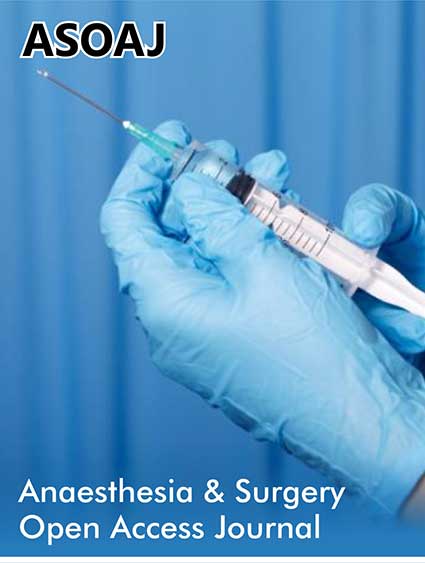 Review Article
Review Article
Transversus Thoracis Muscle Plane Block in Children Undergoing Open Heart Surgery via Median Sternotomy
Nabil A Mageed*, Ibrahim I Abd El Baser and Mohamed M Morsy
Department of Anesthesia and Surgical Intensive Care, Faculty of Medicine, Mansoura University, Egypt
Nabil A Mageed, Department of Anesthesia and Surgical Intensive Care, Mansoura University, Egypt.
Received Date: May 19, 2020; Published Date: May 27, 2020
Abstract
Sternum is the main source of pain after cardiac surgery. The use of high doses of opioid are associated with prolonged mechanical ventilation. Regional anesthetic techniques facilitate early recovery. Transversus thoracis plane (TTP) block is a newly developed analgesic technique that can provide adequate analgesia for surgeries associated with sternotomy. In pediatric cardiac surgery, the dose of local anesthetics for TTP block is not described in any of literature. In our hospital (Mansoura University Children Hospital), we perform bilateral TTP block for most of children submitted for cardiac surgery via median sternotomy in a dose of 0.2-0.3mL/kg 0.2 to 0.25 % bupivacaine on each side of sternum. We found that, the above dose provides effective perioperative analgesia without any signs of local anesthetic toxicity. The aim of this work is to highlight the analgesic efficacy of TTP block and the dose of local anesthetic in children undergoing open heart surgery via median sternotomy.
Keywords: Transversus thoracis; Pediatric cardiac; Sternotomy; Block; Surgery
-
Nabil A Mageed*, Ibrahim I Abd El Baser and Mohamed M Morsy. Transversus Thoracis Muscle Plane Block in Children Undergoing Open Heart Surgery via Median Sternotomy. Anaest & Sur Open Access J. 2(1): 2020. ASOAJ.MS.ID.000526.
-

This work is licensed under a Creative Commons Attribution-NonCommercial 4.0 International License.






